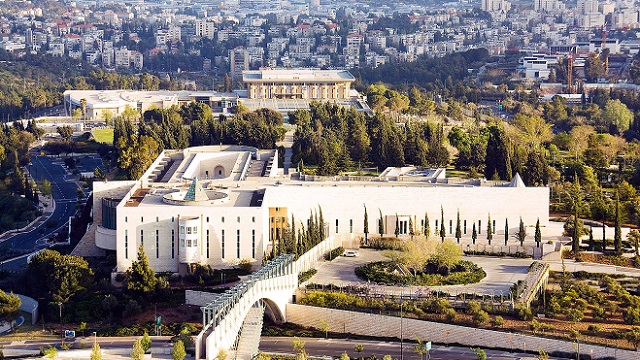Israel has fallen out of the “liberal democracy” category for the first time in over 50 years and has dropped to the level of the less democratic “electoral democracy,” according to the 2024 “Democracy Winning and Losing at the Ballot” report issued by the V-Dem (Varieties of Democracy) Project. The downgrading came as a result of the political policies of the Benjamin Netanyahu government.
The V-Dem project distinguishes between five high-level principles of democracy: electoral, liberal, participatory, deliberative, and egalitarian, and collects data to measure these principles.
In the wake of the barbaric Hamas terror attack of October 7, 2023, people in Israel and around the world quickly forgot about the sharp political discord that ravaged the country in the previous year. This included the run-up to Israel’s 2022 national elections, the formation of the Netanyahu government and the many months after Netanyahu unveiled his plans to change Israel’s system of government, specifically with judicial reform.
Will you offer us a hand? Every gift, regardless of size, fuels our future.
Your critical contribution enables us to maintain our independence from shareholders or wealthy owners, allowing us to keep up reporting without bias. It means we can continue to make Jewish Business News available to everyone.
You can support us for as little as $1 via PayPal at office@jewishbusinessnews.com.
Thank you.
Massive protests rocked Israel in the period from January 2023, when Justice Minister Yariv Levin revealed the government’s plans to alter the nature of Israel’s judicial system, until the October 7 massacre. The government’s judicial reform plan would greatly curtail the power of Israel’s Supreme Court to nullify legislation passed by the Knesset and also limit the authority of Israel’s attorney general. The opposition charges this would harm Israel’s democracy, eroding foreign confidence in the country and hurting its economy. And this is why the country is now on the brink of what some are describing as the biggest societal clash in Israel’s history.
It was the move to limit the Supreme Court’s powers that motivated the V-Dem project to downgrade Israel’s status.
“Israel lost its long-time status as liberal democracy in 2023,” said the Project. “It is now classified as an electoral democracy – for the first time in over 50 years.”
The reason given was the country’s “substantial declines in the indicators measuring the transparency and predictability of the law, and government attacks on the judiciary.”
Among other things, said the report, Israel’s Knesset passed a bill in 2023 stripping the country’s Supreme Court of the power to declare government decisions unreasonable.
However, Israel is still the only democracy in the whole of the Middle East, comprising 2% of the region’s total population. The Middle East and North Africa, said the report, remains the most autocratic region in the world, with 98% of its population residing in autocracies. A large share (45%) lives in closed autocracies such as Iran, Libya, and Saudi Arabia, but 53% live in electoral autocracies, such as Türkiye and Iraq. 2% of the region’s population reside in Tunisia, which is in the “grey zone” electoral autocracy category. The remaining 2% live in Israel.
Electoral democracy and liberal democracy are related concepts, but they have some key differences. An electoral democracy focuses on the process of choosing leaders through fair and competitive elections. They have the basic requirements for any democracy. However, they may lack additional protections for individual rights or limitations on government power.
A liberal democracy, on the other hand, builds on electoral democracy by adding guarantees for individual liberties like freedom of speech, religion, and assembly. It emphasizes the rule of law and an independent judiciary to protect these rights while limiting the power of the government through a system of checks and balances.
And this is exactly what the political opposition was trying to say in its widespread protests against the Benjamin Netanyahu government’s proposed judicial reform plan.




